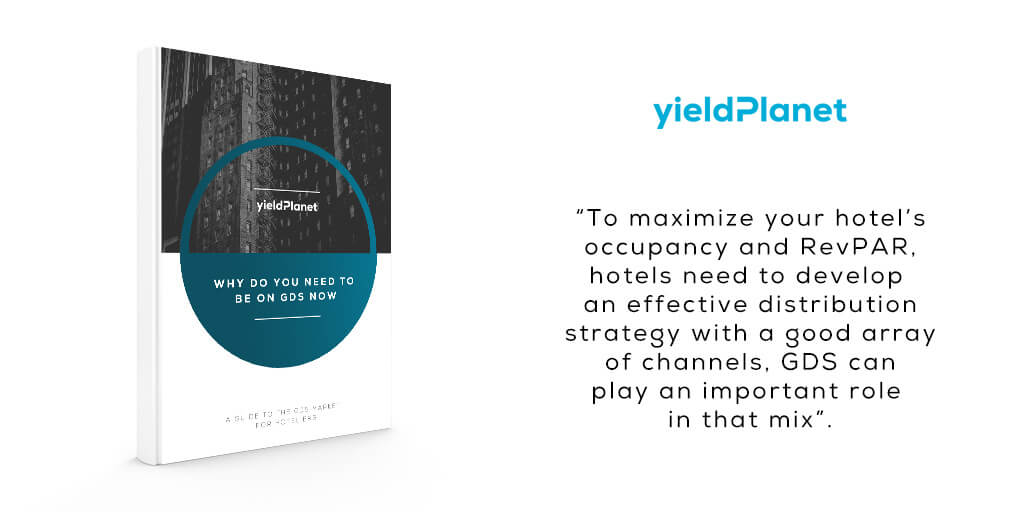
Consortia as a source of corporate bookings
Consortia as a source of corporate bookings
GDS distribution is the entry point to worldwide corporate travelers. The GDS feed most consortia, providing a major source of business for hotels that capture strong corporate demand. How to join TMC & Consortia hotel programs to make the most of your online channel distribution?
There are various channels a hotel should be aware of existing when it wants to have access to corporate reservations. The most important one is the GDS (Global Distribution system). GDS distribution is undoubtedly the entry point to worldwide corporate travelers who book accommodates for their professional travel through travel agents or their corporate self-booking tool (connected to GDS). This makes GDS an opportunity to reach an attractive segment of clients.
The GDS feed most consortia, providing a major source of business for hotels that capture strong
corporate demand. A Consortium is an organization consisting of independent travel agents and agencies joined together to increase their buying power, commissions, and amenities they are able to provide clients worldwide. In many cases, these agents switch consortium, consolidate or are acquired ongoing, or associate with several consortia, the main goal being a larger reach of hotels. Some of the main international consortia are ABC,WIN Global Travel Network, American Express, BCD, CCRA, Carlson Wagonlit, Radius, and Thor. A broad list of the most powerful travel agencies is available here.
Consortia rates
In exchange for offering better rates and commission to the TMC’s & Consortia, hotels receive listings under their private GDS rate code, website, and intranet for additional exposure to all member agents. Viewership of Consortia rates in the GDS is restricted – the rate is not available to general public and may be booked only when you enter the Consortia rate code. This means that if an agent searches for hotels in your city under the Consortia rate code and your hotel is not listed with the Consortia, your hotel will not show up in these search results.
Why join consortia & TMC programs?
Consortia will help you access new clients, drive growth, ADR, occupancy and incremental sales. TMC & Consortia will give you enhanced exposure to booking agents and their clients globally, all year round.
By joining TMC & Consortia hotel programs, your product is distributed to a balanced mix of on average 80% corporate and 20% leisure agencies, with both weekday and weekend business. You also get access to a variety of additional marketing opportunities to elevate your position and drive incremental business.
Consortia management programs help independent hotels compete for a share of the global business and leisure travel market by marketing preferred rates to qualified travel agents.
TMCs book the consortia rates and corporate rates they have access to, and all public rates.
EXAMPLE: CONSORTIA RATE
An agent part of ABC Global services can book ABC Global Travel rates only if a hotel has signed a contract with ABC Global Services. An agent with CCRA Travel would not be able to book the ABC Global Travel rates.
Travel Management Companies negotiate rates with hotels on behalf of the corporations they represent. This rate is specific to that client and only authorized users can view, access, and book the negotiated rates. Corporations pick the Travel Management Companies they want to handle their travel bookings, and only this TMC has access to the negotiated rates for that corporation.
EXAMPLE: CORPORATE RATE WITH A TMC
Corporation, say, XYZ has a negotiated rate with your hotel. Corporation XYZ has decided to work with American Express Business Travel, so American Express agents can see and book your negotiated rated with Corporation XYZ. An agent at CWT would not be able to book this negotiated rate.
Hoteliers determine the right Consortia & TMC partners to contract with each year. The bidding process has just started, so if you are considering to join, the moment is now. Here is the general Consortia timeline.
General Consortia Timeline:
June 1st – December 31st
• Sign up opens for Consortia services 2020
June 15th – August 30th
• From June 15th: RFP System training & educational sessions
o Invites with dates & times are sent separately
o Online training available all year at sabre University
• July 31st: (Recommended date)
o Hotel to complete their profile data – this is a recommended deadline since hotels cannot complete any Consortia submissions until profile data is 100% completed in the system.
• From August 1st: Consortia RFP training sessions – deep dive
o Invites with dates & times are sent separately
o Online training available all year at sabre University
From July 18th
• Sign up to Consortia Packages
• Individual Program sign up and a la carte sign up – Nexus Launch date is August 1st
• Additional Programs are being launched ongoing until October
• First Consortia submission deadlines are set to August 29th (Late submissions are accepted)
October 1st – December 31st
• Rate extension – ensure your existing consortia rates are extended until 31 March 2020, to avoid missing out on any potential bookings in the beginning of the year
• Rate loading & mapping – hotels are responsible for building and managing rates in the CRS, rates will then be automatically mapped to the GDS
From November 1st
• Sign up opens for 2020 consortia marketing opportunities and event participation
January 1st – February 28th
• Archive or Delete expired rates
• Rate Audits are performed ongoing to ensure rate availability in GDS and remove squatted rates
Read our GDS white paper Why do you need to be on a GDS now? A guide to the GDS market for hoteliers’ to learn more about GDS market.









